
Turkish tea: Don’t be fooled by the delicate little cup, this is one full-flavoured cuppa. If you’re a fan of strong tea, begin your day with Turkish tea — just as famous as its coffee counterpart. Considering Turkey is one of the leading consumers of tea in the world, you’ll find a cuppa everywhere, usually brewed with locally grown black Rize tea. Also don’t miss out on the flavoured and herbal versions that range from mildly-tart pomegranate (recommended) to fragrant rosehip
Rumela Basu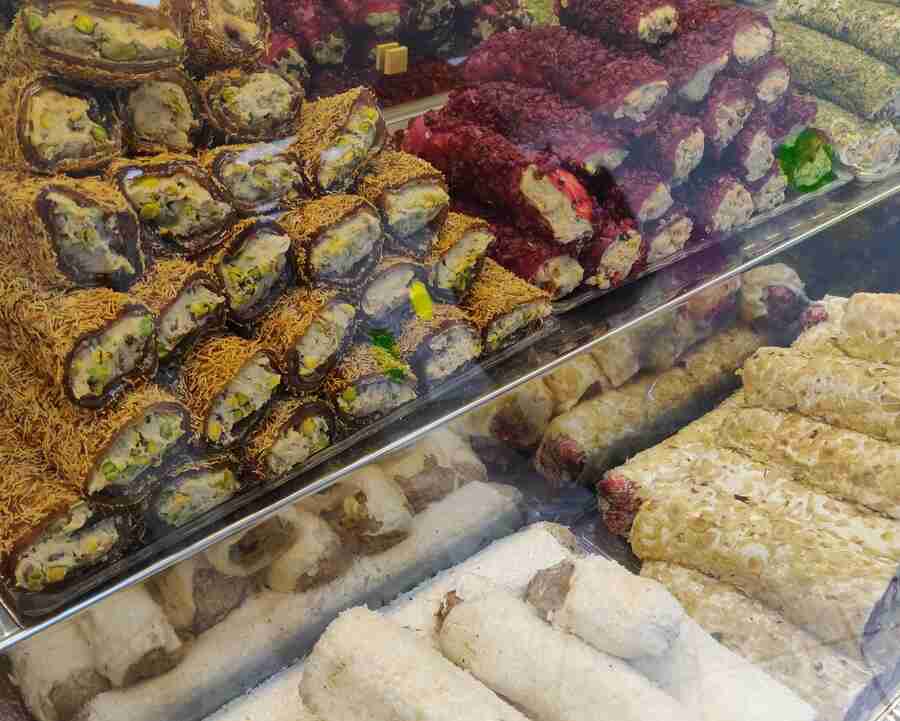
Turkish delight: Known as ‘lokum,’ the soft, chewy Turkish delight is a sweet from fairytales (Literally! Remember the scenes from ‘Chronicles of Narnia’?). Reportedly, the origins of this treat go back to 18th-century Turkey and Persia. The colourful, sugar-dusted cubes and rolls — there are two versions: with an outer covering or dried apricot or nougat, and without — are available throughout the country. If you get a chance, take a trip to a Turkish delight factory
Rumela Basu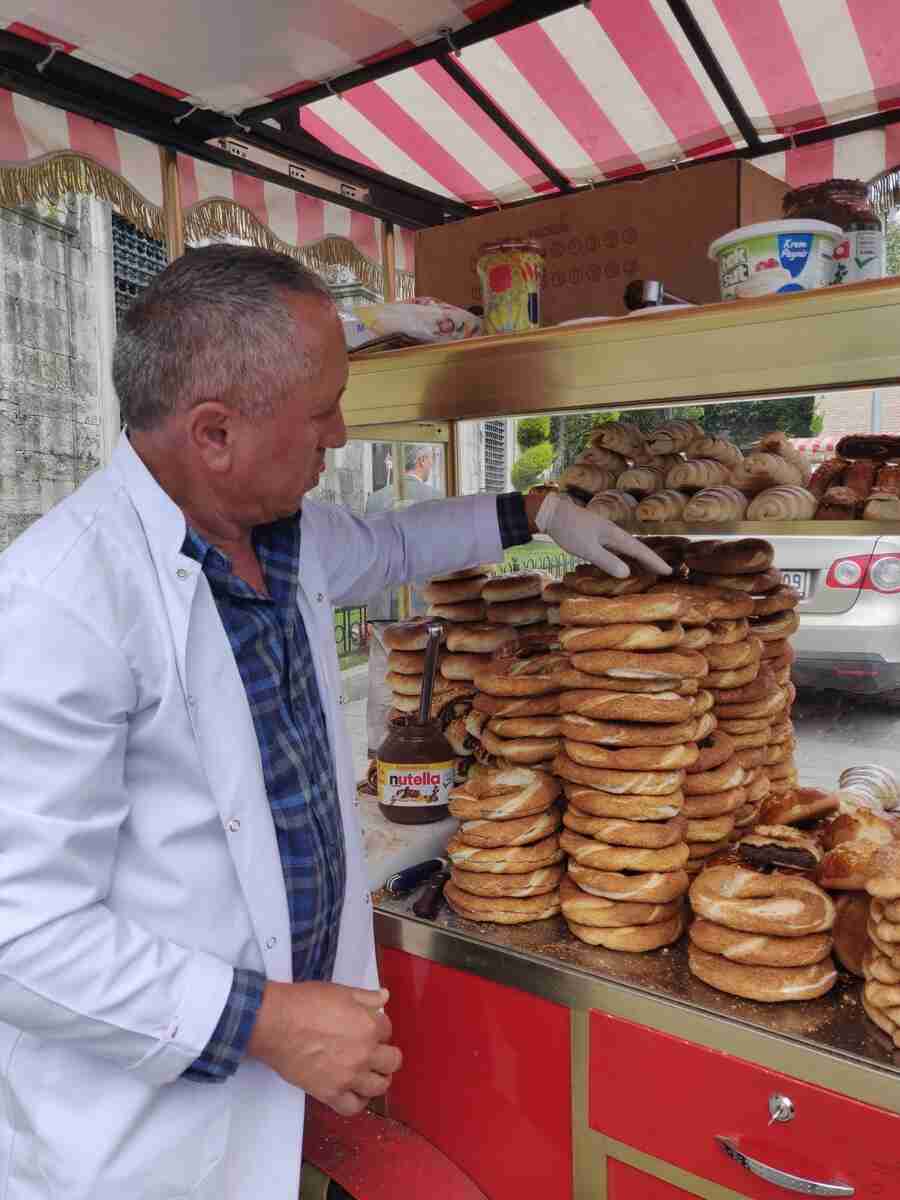
Simit: There are few things as enjoyable as fresh, oven-baked bread. The Turkish pretzel, ‘simit’, is a perfect example. The circular bread is usually topped with sesame seeds, and sold from carts around the country. Interestingly, sometimes the name differs with region. In Izmir, some might call it ‘gevrek,’ though it is similar to the ‘simit’ of Istanbul. Enjoy one at breakfast with a side of the special ‘bal kaymak’ or bunch on a Nutella coated one while you walk around town
Rumela Basu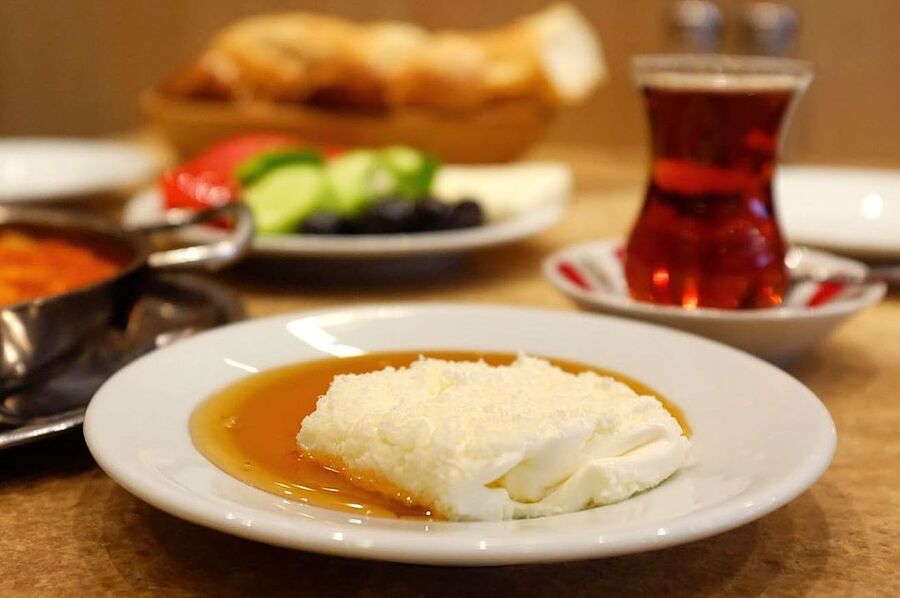
Bal kaymak: The closest thing to Turkish ‘kaymak’ is clotted cream. Made from buffalo, cow, goat or sheep milk, this creamy concoction is a spread, a topping, and a breakfast staple with sweet, sticky honeycomb. Bal kaymak, clotted cream with honey, is found on every breakfast table in the country. If you have a sweet tooth, you are sure to like this and if you don’t, you should still try it for a taste of the different textures, and flavours
@goreme_kurtulus/Instagram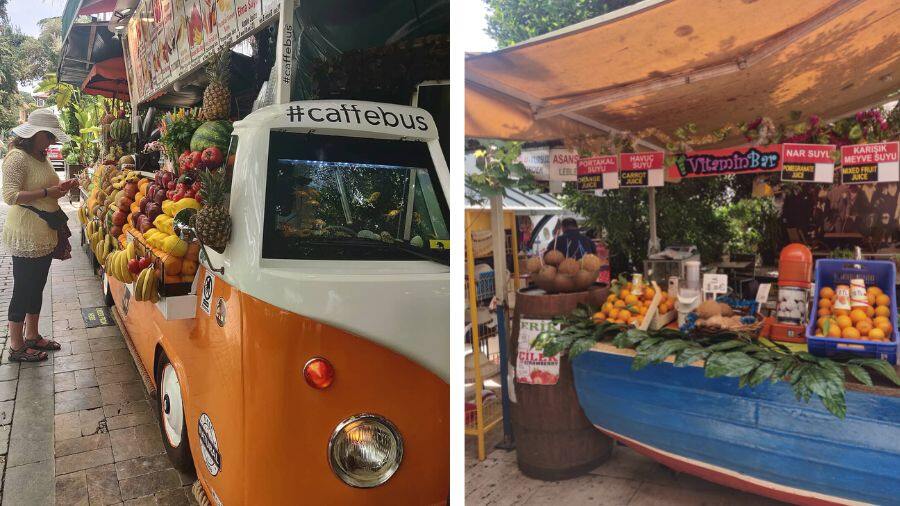
Vitamin: If you’re looking for vitamin in Turkey, you’ll be directed not to a pharmacy but to a fruit juice stall. Vitamin bars (fruit juice stalls) are as much a constant street fixture in Turkey as are the cats. Hydroponic greenhouses line acres of Antalya's lands growing citrus fruits, tomatoes and tonnes of other fresh, organic produce. Stop for a drink of freshly squeezed concoctions, often with innovative combinations of different fruits
Rumela Basu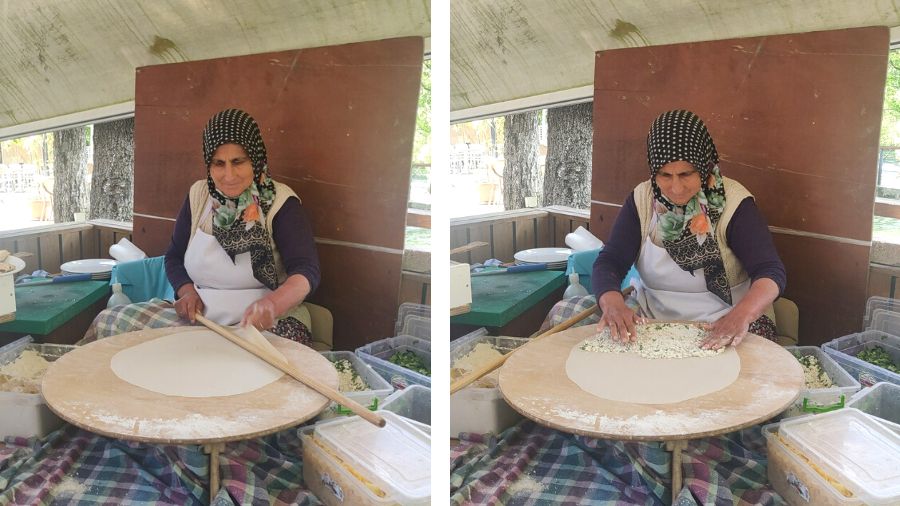
Gözleme: This traditional stuffed pancake (think stuffed roti) is made with a simple dough of flour, salt and water and stuffed with cheese and spinach, or sometimes just potatoes or just cheese. In many tourist areas, like at the visitor’s area of the Manavgat Falls in Antalya, you will find Turkish aunties with their ‘gözleme’ stalls — few flourishes of the rolling pin and a few minutes on a large ‘tava’ and hot, pillowy, cheesy gözleme is served
Rumela Basu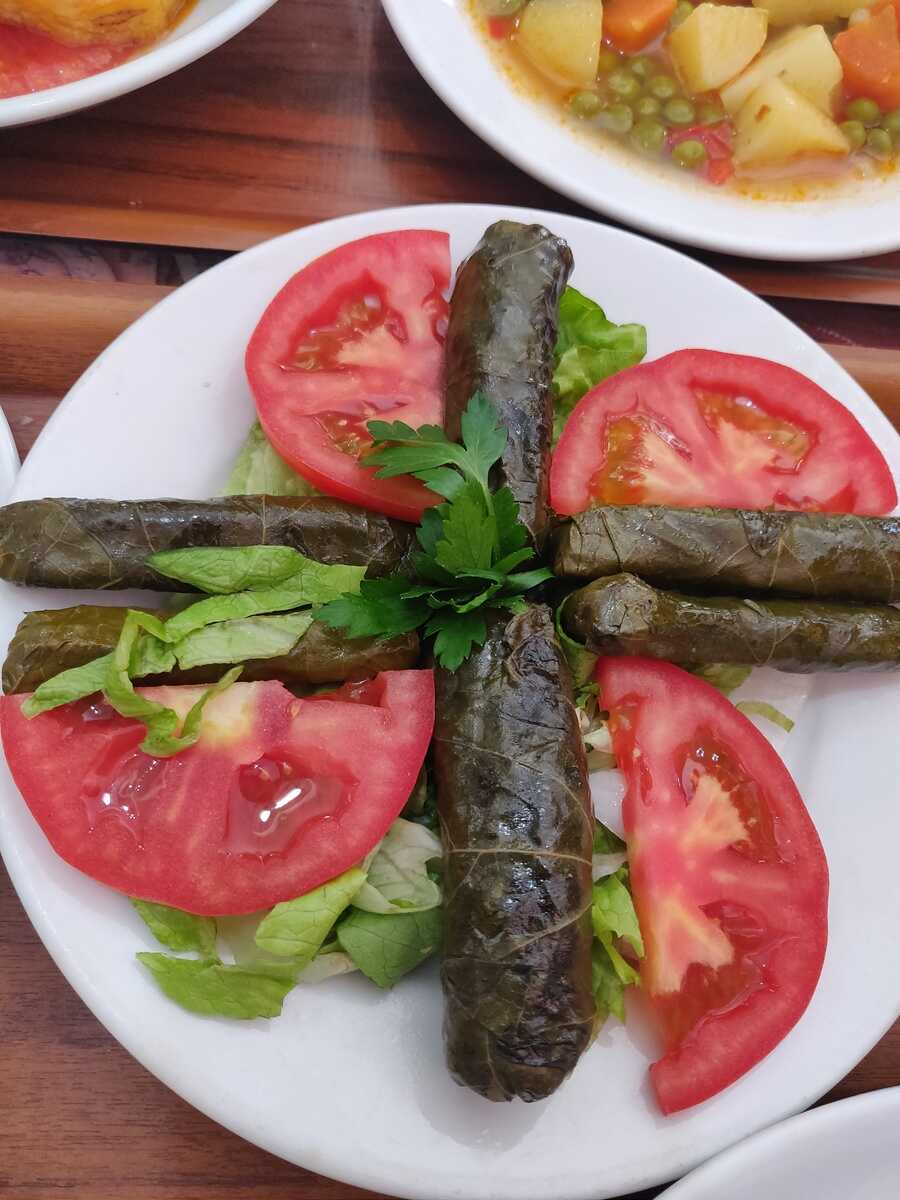
Dolma: If you’ve heard of the Greek ‘dolmades,’ then you’re familiar with the Turkish dolma. Here, any stuffed, rolled parcel of food is called a ‘dolma,’ which incorporates a slew of dishes associated with Ottoman cuisine. Usually a stuffing of cooked rice with vegetables, or minced meat is rolled in grape vine leaves and steamed. Other leaves, and cabbage are also often used. The grape leaf versions are usually called ‘yaprak dolma or ‘yaprak sarma’. If this made you think about the Bengali ‘potoler dolma,’ you’re not alone. Maybe there’s a connection to find there
Rumela Basu
Wine (with a sunset): Though not many of the local population drink it, Turkey makes some delicious wine and is among the popular wine countries of the world. The full-bodied and fruity wines pair well with many dishes. Try a robust red with your meats or a sweeter white with grilled fish. Better yet, if you find yourself at the Red Rose Valley in Cappadocia, savour the sunset with a crisp, young, local Sauvignon Blanc
Rumela Basu



